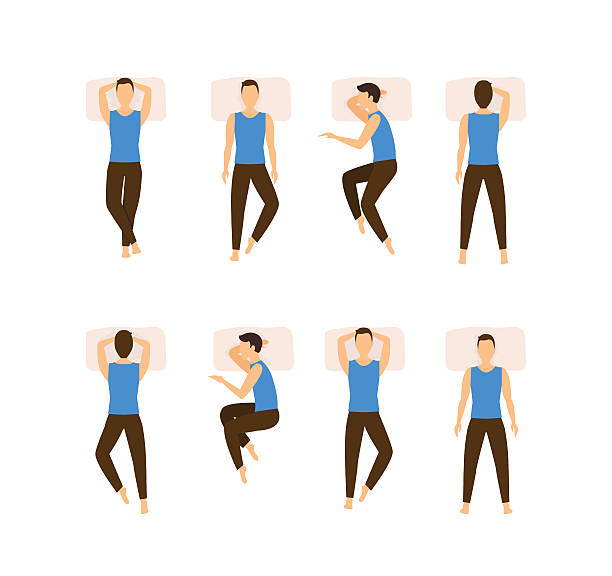What Your Sleeping Position Says About You | Part 1

In the past several months, a “sleep study” was reported by multiple news outlets (including Fox, the Telegraph, and the Daily Mail) detailing what your sleep position might say about you. It’s a fun little exercise to find your favorite sleeping positions and see what they could mean about your personality, so it’s no wonder the topic took off on the web.
Not everything you read on the internet is true…
If you dig a little deeper, though, the “study” was actually a survey undertaken by a budget hotel chain and body-language specialist Robert Phipps. Phipps used the results of the survey to create a body language analysis “akin to a horoscope”—a “sleep-o-scope” of sorts. In an email, Phipps told the Huffington Post “it was never meant to be taken seriously and there was no research on my part.”
So is there a link?
Dr. Chris Idzikowski of the Edinburgh Sleep Centre conducted research that indicates there may be some link between sleeping position and personality type in the UK—though the link doesn’t necessarily hold up cross-culturally. Idzikowski and his team surveyed over 1,000 British sleepers and, using a factor analysis, found that certain self-reported positions corresponded to certain self-reported psychological traits. Further work by Idzikowski on a group of Southeast Asians found no similar correlations among that group.
Still, there are questions…
Philip Gehrman of the Penn Sleep Center told the Huffington Post that he doubts there’s a deep connection between a person’s sleeping position and his (or her) psychological state of mind. People tend to move during the night while they sleep, but that doesn’t mean they’re undergoing deep-seated mental changes.
On the other hand, sleeping positions does have the ability to affect quality of sleep and overall health. Sleeping on your stomach, for example, can be good for digestion. Sleeping on the back can exacerbate sleep apnea. So when it comes to helping your overall health, there may be something to the idea of looking at how you sleep to find some unexpected ways to improve your sleep.
Check in next time as I take you through Phipps’ “sleep-o-scopes” and Idzikowski’s sleep positions. It’s still fun.
Author Bio: +Michelle Gordon is a sleep expert who researches and writes about sleep and health, and is an online publisher for the latex mattress specialist Latexmattress.org.


